READY TO GET STARTED?
REQUEST A FREE ESTIMATE
Fill out the form below or call (888) 466-7849 for a free, no-obligation estimate.
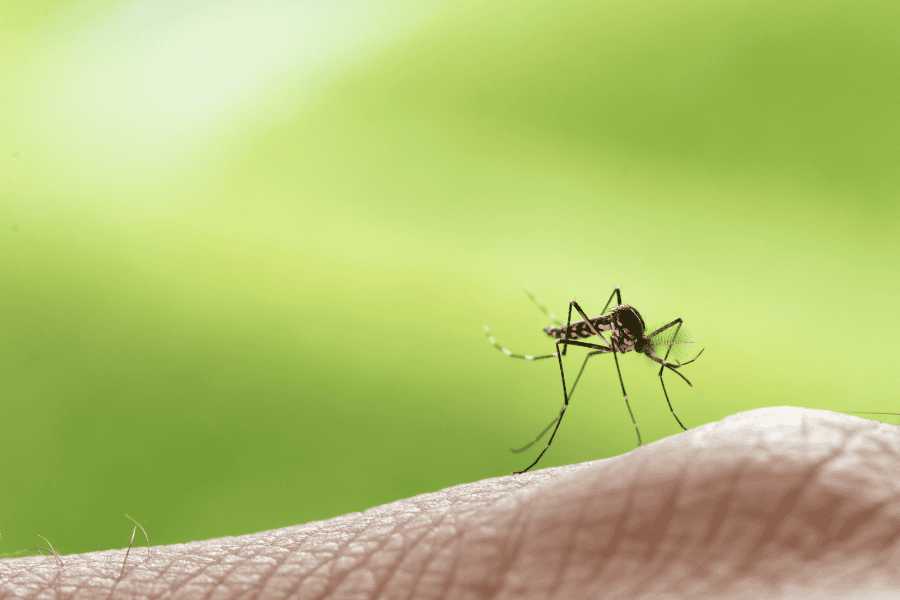
As a Florida resident, dealing with mosquito season each year can start to feel like a never-ending battle! Luckily, there are plenty of ways you can deter these pests from your property. We breakdown a guide on mosquito prevention you can utilize to protect your family and property in Florida from these pests!
To survive and breed, female mosquitoes need a blood meal, often looking to humans and pets for it. Mosquitoes will transfer diseases and viruses, including the Zika virus, dengue, West Nile virus, and more, making it crucial to protect yourself and your family from mosquito bites during their peak season. One of the best ways to deter mosquitoes from biting you and your family is utilizing mosquito repellent that contains DEET. Repellents with DEET can be very effective as they will block the mosquitoes CO2 receptors. We recommend spraying it onto your hands and running it over your skin instead of spraying it directly onto the skin.
Your lawn is the first line of defense against mosquitoes taking over. The best way to avoid mosquito infestations is to maintain your lawn and place preventative measures throughout your yard to deter them away. Mosquitoes only need the smallest amount of standing water to breed, so it’s important to remove any potential breeding sites throughout your property. Inspect your yard and remove items that can hold water, leaves and debris, clogged gutters, and drainage sites. Likewise, look to trim trees and shrubs that are overgrown and continue your ongoing mowing schedule.
Have you ever had to deal with a constant buzzing sound in your home? If so, you know how annoying it can be, especially when you can’t find the culprit! To keep mosquitoes from sneaking into your home, confirm that your windows and doors screens are in good condition, replacing any torn ones if needed. During peak mosquito season, try to keep your doors and windows closed as much as possible.
While placing these measures throughout your home will always support mosquito prevention efforts, sometimes it’s best to reach out to a mosquito control company near you for even more support. Consider hiring a reputable Florida mosquito control company to inspect your property, identify breeding sites, and implement targeted treatments to reduce mosquito populations effectively.
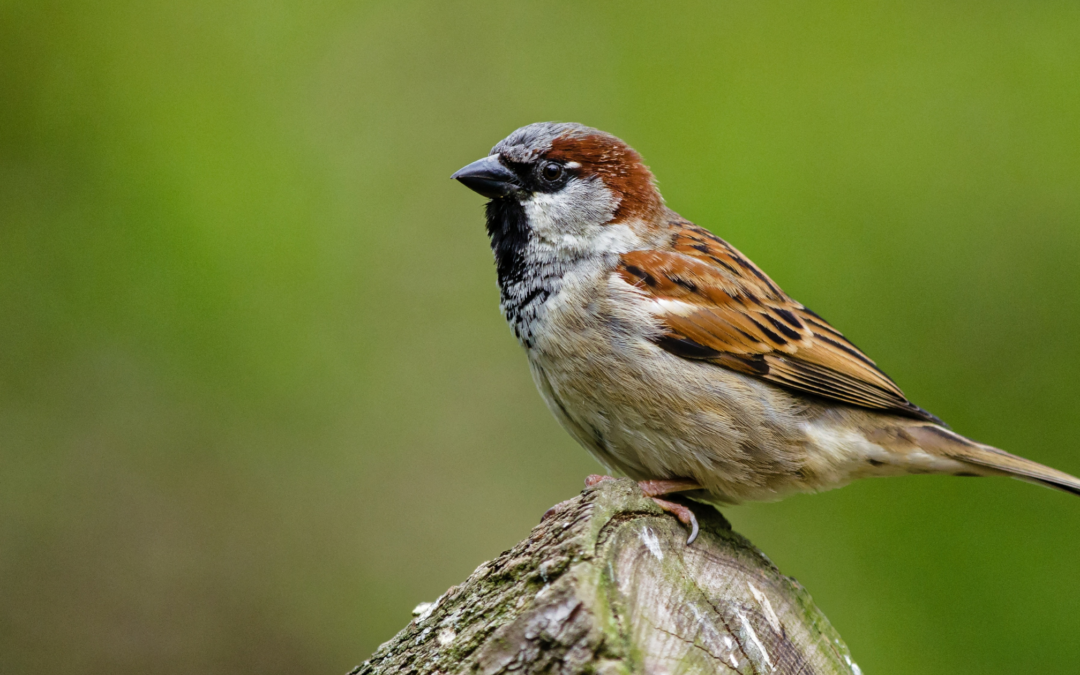
Nestled in the heart of the South, Georgia boasts lush landscapes and vibrant wildlife. However, along with its natural beauty comes the challenge of dealing with nuisance birds. From pesky pigeons to assertive seagulls, these feathered intruders can wreak havoc on homes and businesses alike. In this guide, we’ll explore common nuisance birds found in Georgia, the risks they pose, effective methods for bird control, and preventive measures to keep your property bird-free.
Georgia is home to a variety of bird species, some of which can become unwelcome guests on your property. Among the most common nuisance birds encountered in the state are:
Beyond their irritating presence, nuisance birds can pose several risks to both property and human health:
When faced with a bird problem, it’s essential to employ effective bird control strategies. Here are some methods commonly used by wildlife control companies:
While effective bird control measures can help address existing bird problems, preventing future infestations is key to long-term success. Here are some preventive measures to consider:
Dealing with nuisance birds can be a challenging task for property owners, but with the right approach, it’s possible to keep these feathered intruders at bay. By understanding the common nuisance birds found in Georgia, recognizing the risks they pose, and implementing effective bird control and prevention strategies, you can protect your property from damage and ensure a bird-free environment. Whether you’re facing a minor bird problem or a full-blown infestation, partnering with a reputable wildlife control company can provide expert assistance in addressing your bird control needs.
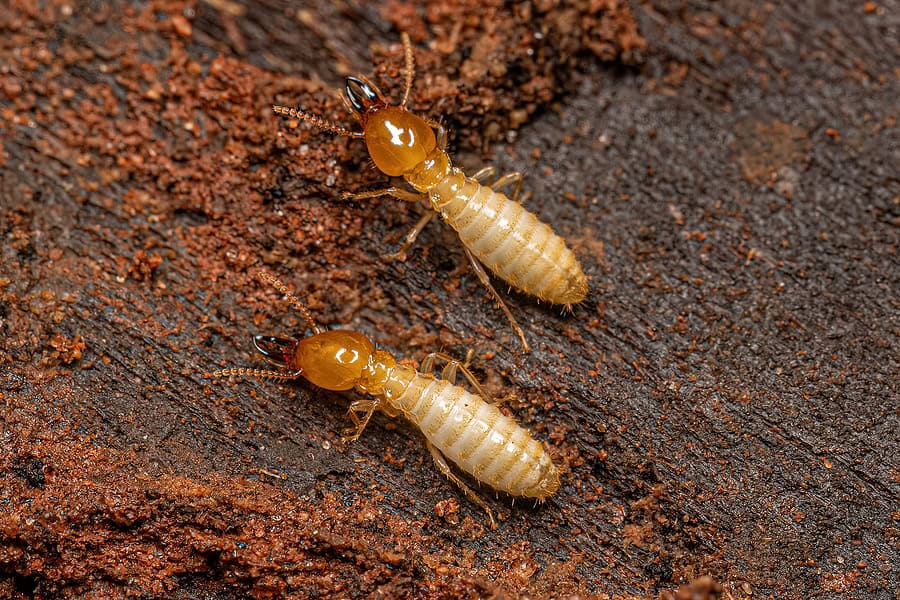
Subterranean termites will go undetected and cause severe damage to Florida homes. While there are several species of termites, subterranean termites are one of the most popular species found in areas of Florida. We breakdown what you should know about these termites and how you can prevent them from infesting your home.
Subterranean termites need a water source and soil to survive and form their colonies. These termites create mud tubes to travel back and forth between your home and their nest. These tubes protect them from damage and predators, and allow them to accumulate moisture for survival.
Subterranean termites are active year-round, with swarmers being the earliest sign of their activity. Termite swarming season in Florida can start as early as February and run all the way until June. Spotting swarmers around your home is the first indication that a termite colony is present nearby, and another one could be starting up soon.
Subterranean termites will stay hidden within wood and underground within their colony. Their mud tubes will protect them and allow them to stay hidden when traveling back from their nest to your home. These mud tubes are typically about the size of a pencil and can be on ceilings, walls, exterior surfaces, and on the sides of slabs.
Since these colonies stay hidden, it can be very difficult to detect them, allowing them to cause extensive damage to homes. Many termite infestations can go unnoticed until it’s too late for early treatment before their damage is done. In the United States, termites are known to cause over $5 billion in damage to homes annually.
There are several preventative options that Florida homeowners should consider to prevent termite infestations. Several pest control companies provide varying techniques of termite management, including liquid barrier treatments and termite bait treatments, such as the Sentricon®️ Always Active Bait Station. These preventative measures also include annual inspections along with their treatments to provide you with the peace of mind that your home is always being protected from termites.
If you’re interested in termite control, reach out to a pest control company near you. These professionals will provide you with a thorough inspection and a customized treatment and prevention plan for your home.
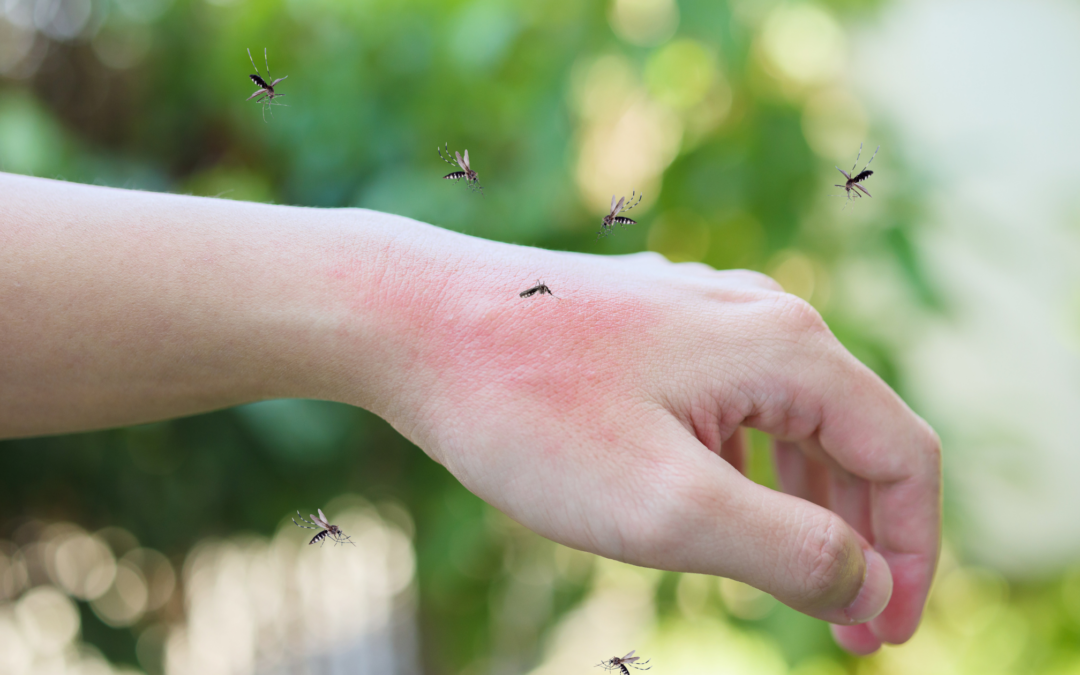
In the warm and humid climate of Georgia, mosquitoes are a common nuisance, particularly during the summer months. While their buzzing may seem harmless, mosquito bites can lead to discomfort and even pose health risks. Understanding how to identify, treat, and prevent these bites is essential for maintaining a safe and enjoyable outdoor experience. In this guide, we’ll delve into everything you need to know about mosquito bites and how to deal with them effectively.
Mosquito bites are typically small, red, and itchy bumps on the skin. They often appear in clusters and can be easily mistaken for other insect bites. However, there are some distinguishing features of bites from mosquitoes that can help you identify them. They usually have a central puncture mark, where the mosquito has inserted its proboscis to draw blood. Additionally, they tend to itch more intensely compared to other insect bites.
Aside from the characteristic red bumps and itching, bites from mosquitoes can sometimes cause more severe reactions in certain individuals. These symptoms may include swelling, soreness, and even blistering around the bite area. In rare cases, individuals may experience allergic reactions to mosquito saliva, leading to symptoms such as hives, difficulty breathing, and swelling of the face or throat. It’s essential to seek medical attention immediately if you experience severe allergic reactions to these bites.
Mosquito bites not only cause discomfort but also carry the risk of transmitting various diseases. In Georgia, mosquitoes can transmit diseases such as West Nile virus, Eastern equine encephalitis, and Zika virus. Additionally, pets are also susceptible to mosquito-borne illnesses, including heartworm disease in dogs. Mosquito control is crucial for protecting both humans and pets from these potentially harmful diseases.
The duration of insect bites can vary depending on individual factors such as skin sensitivity and immune response. In general, mosquito bites typically last for a few days to a week. However, the itching and discomfort can persist for longer periods in some cases. Proper treatment and care can help alleviate symptoms and speed up the healing process.
When it comes to treating bites from mosquitoes, there are several home remedies and over-the-counter options available. Calamine lotion or hydrocortisone cream can help reduce itching and inflammation. Applying a cold compress or ice pack to the affected area can also provide temporary relief. Additionally, antihistamines can help alleviate itching and discomfort caused by the bites. For severe reactions or signs of infection, it’s best to consult a healthcare professional for proper evaluation and treatment.
Prevention is key when it comes to avoiding mosquito bites. Here are some effective strategies to minimize your risk of being bitten:
Mosquito bites are more than just a nuisance—they can pose serious health risks to humans and pets alike. By understanding how to identify, treat, and prevent them, you can enjoy the outdoors safely and comfortably. Remember to take proactive measures to control mosquitoes around your home and minimize your exposure to these pesky insects. If mosquito infestations persist despite your efforts, consider seeking professional assistance from a trusted mosquito control company to address the issue effectively. Stay informed, stay protected, and enjoy a bite-free summer in Georgia!

House mice, roof rats, Norway rats, and other rodents seek our homes as a place for shelter to breed and search for an available food source to survive. These creatures are known to contaminate our environments and spread diseases such as plague, tularemia, and hantavirus. Rodents will often chew through insulation and electrical wiring, creating the risk of a fire. Placing do-it-yourself rodent-proofing measures throughout your home will protect your property and family from these pests.
Rats and mice seek out food, water, and shelter in homes, so it’s important to eliminate these factors from your property to avoid an infestation. Let’s review our DIY rodent-proofing tips for your Florida property:
If you’ve noticed signs of rodents or would like extra help with rodent-proofing, call a pest control company near you! Professionals will provide you with a free analysis and a recommended rodent control treatment and prevention plan!
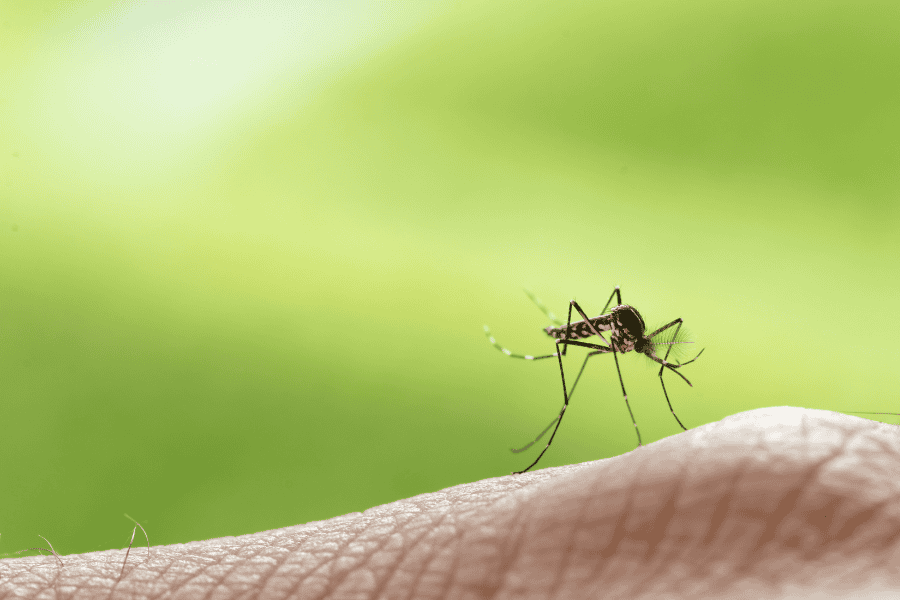
Dealing with mosquitoes is almost a year-round endeavor for Florida homeowners. Florida’s humid and hot weather is the perfect environment for these pesky insects to thrive. Unfortunately, we often deal with their itchy, irritating bites. So why do mosquitoes bite in the first place? And what are the best ways to prevent mosquitoes from biting us and taking over our yards? Let’s breakdown mosquito bites and easy do-it-yourself methods to prevent them.
To obtain the protein to develop eggs, female mosquitoes will bite animals and humans. Female mosquitoes will locate a host by the carbon dioxide we exhale, heat, and even body odor. When a mosquito lands on your skin, it will use its proboscis or their long, needle-like mouthpart, to pierce your skin and suck your blood. While the mosquito is feeding, it will inject its saliva onto your skin, which can cause an allergic reaction and result in itchiness and swelling. Mosquitoes will bite and feed on blood until they have consumed enough and are full.
Depending on the person, mosquito bites can cause an allergic reaction and are also prone to spread disease, including the Zika virus, West Nile, and Encephalitis, so it’s important to take precautions before you go outside during peak mosquito season and maintain your yard to avoid their infestation. There are several do-it-yourself tips to prevent mosquito bites you can utilize:
Eliminating and controlling mosquitoes can feel like an endless battle during Florida’s spring and summer months, even with preventative measures in place. But you don’t have to battle mosquitoes alone! Contact the nearest pest control company for a thorough inspection, effective mosquito control plan, and recommendations on preventing mosquitoes in the future!
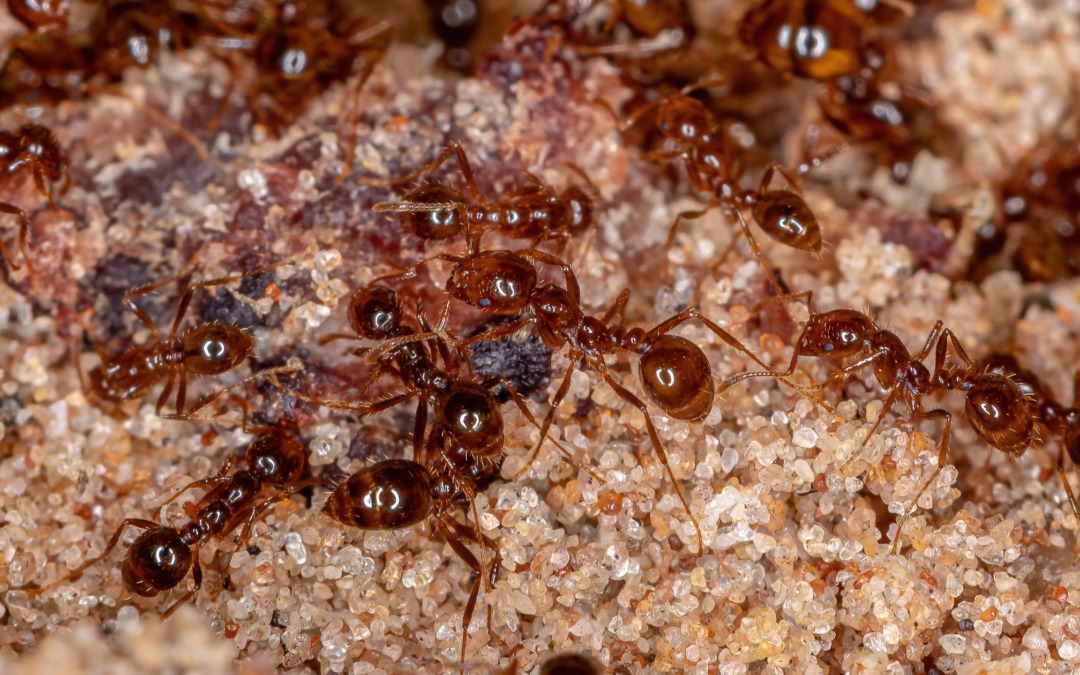
Fire ants, with their fiery stings and relentless mounds, can quickly turn your yard into a battleground. For Georgia homeowners, dealing with these aggressive pests is an ongoing challenge. However, with the right strategies and tools, you can regain control of your outdoor space and enjoy it without fear of fire ant attacks. In this guide, we’ll explore the signs of fire ants, the dangers they pose, what to do if you’re bitten, and most importantly, how to effectively eliminate them from your yard.
Identifying a fire ant infestation is crucial for prompt action. Look out for telltale signs such as:
Beyond their painful stings, fire ants pose several risks:
If you or someone else is stung by a fire ant, follow these steps:
Effective fire ant control requires a multi-faceted approach. Here are some strategies to consider:
Once you’ve eradicated fire ants from your yard, take steps to prevent future infestations:
In conclusion, controlling fire ants in your Georgia yard requires diligence and a combination of tactics. By identifying signs of infestation, understanding the dangers they pose, and implementing effective control measures, you can reclaim your outdoor space from these troublesome pests. For fast-acting and reliable fire ant control, trust the expertise of a professional pest control company near you to safeguard your home and family.
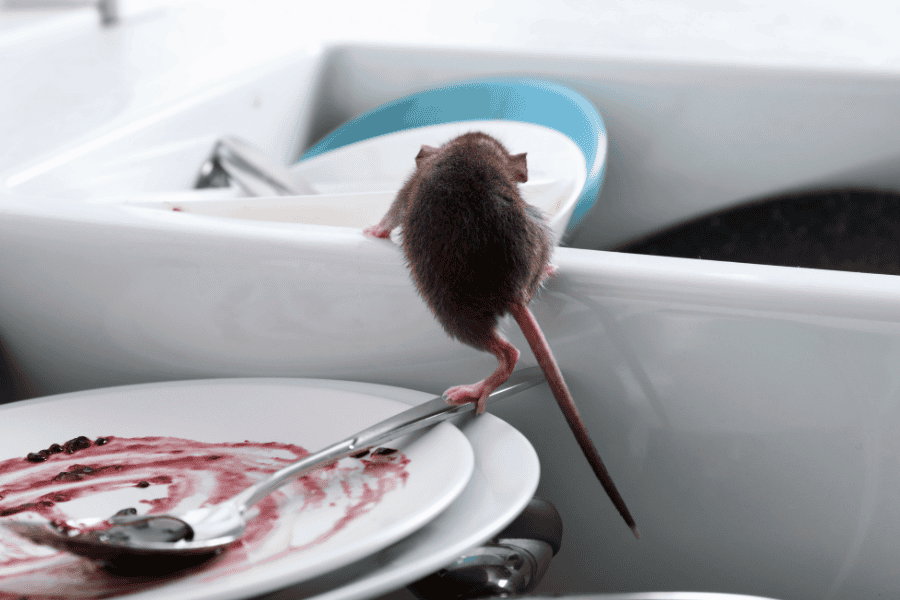
Rats are practically year-round creatures in Florida, seeking your home for a warm place to nest and find a food source. Once these rodents find their way inside your home, they will reproduce quickly, making it difficult to remove them. Here is what attracts rats to your home and easy prevention tips to avoid a future infestation!
Rats are attracted to homes that are both dirty and cluttered. These wildlife creatures look for leftover food crumbs and spills for their food source. Likewise, rats tend to utilize piles of old newspapers or cardboard boxes to create a nest and hide out.
Rats can enter homes through a gap or hole the size of a quarter! If any openings are found, they’ll use it to their advantage to make their way inside your home. You can often find these openings around your foundation, doors, and windows.
Your yard is the first line of defense for avoiding rodents but there could be factors attracting them right onto your property. Leaf piles and deep mulch are the perfect materials for rats nesting sites. Likewise, dirty outdoor grills and open garbage cans can be an invitation for rats to scavenge and find a food source.
Rats need water to survive and will look for any source available in and around your home. If there is a constant supply of water dripping from your pipes, that’s enough for rats to move into your home. Common areas where rats find water include leaky bathroom faucets, pipes in your basement, hose faucets, and even HVAC systems.
One of the biggest rat attractions is any available food source. Leftover crumbs, drink spills, and open food containers in your pantry will all attract rats into your home. Rats are not picky eaters and are attracted to all kinds of food, including meats, vegetables, fruit, and more.
Having a rat infestation can be alarming, not only because of the damage they can cause but also the diseases they can spread. One of the best ways to keep rats from entering your property is to place the preventative measures to deter them in the first place. Consider these tips and tricks to avoid rats:
If you’ve noticed rodent activity at your property or would like to start rodent control now, it’s best to call a pest control company near you. These professionals can provide you with a thorough inspection, rodent identification, and a rodent treatment and removal plan based on your needs.

Georgia, with its lush greenery and thriving ecosystems, offers a haven for diverse wildlife. However, amidst this natural beauty, one tiny creature often wreaks havoc in yards and gardens – the mole. These subterranean mammals may seem innocuous, but their tunneling activities can cause significant damage to your landscape. In this guide, we’ll delve into what moles are, how to identify them, signs of their presence, the damage they can cause, and most importantly, effective methods for mole control.
Moles, small mammals belonging to the Talpidae family, are expert diggers equipped with powerful forelimbs and specialized claws for tunneling underground. Typically measuring around 5 to 8 inches in length, moles have velvety fur and small eyes, adapted for a life spent primarily underground. Contrary to popular belief, moles are not rodents but are more closely related to shrews.
Spotting moles in your yard might prove challenging due to their subterranean lifestyle. However, their telltale signs are often visible. Look out for raised ridges or mounds of soil resembling miniature volcanoes, which mark the entrance to their intricate tunnel systems. Additionally, you might notice surface tunnels or ridges created by their underground passages.
Aside from visual cues like mole mounds and surface tunnels, there are other signs indicating mole activity in your yard. Wilting plants or patches of dying grass may result from moles disrupting the root system while tunneling. Furthermore, the presence of grubs, earthworms, and other soil-dwelling insects in abundance might attract moles to your yard, as they constitute their primary food sources.
While moles primarily feed on insects and earthworms, their tunneling activities can wreak havoc on your yard and garden. Besides uprooting plants and disrupting the root system, their tunnels can create air pockets in the soil, leading to water runoff and soil erosion. Additionally, mole tunnels can provide easy access for other pests like voles and mice, exacerbating the damage to your landscape.
When faced with a mole problem, it’s crucial to tackle the issue promptly to prevent further damage. Here are some effective mole control methods:
While DIY mole control methods can yield results, severe infestations may require professional intervention. When selecting a mole control company in Georgia, consider the following factors:
By enlisting the services of a reputable mole control company, you can effectively address the issue and safeguard your yard from further damage.
Moles, with their incessant tunneling and voracious appetite for insects, can pose a significant challenge to homeowners in Georgia. Identifying the signs of mole activity early on and implementing effective control measures are crucial for preserving the integrity of your yard and garden. Whether opting for DIY methods or seeking professional assistance, addressing a mole problem promptly is essential to minimize damage and restore your outdoor space to its former glory. With the right approach and persistence, you can bid farewell to these subterranean nuisances and reclaim your yard once more.
Remember, if you’re facing a mole problem that seems insurmountable, don’t hesitate to reach out to a trusted mole control company for assistance. With their expertise and specialized tools, they can help you eliminate moles and restore peace to your outdoor oasis.